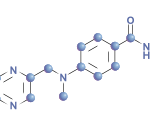“In a group of patients, you can start [tofacitinib] or you can start adalimumab, and you can expect the same result with either,” said Roy Fleischmann, MD, clinical professor of internal medicine at University of Texas Southwestern Medical Center, who presented the results, recently published in The Lancet.
He added, “Anyone who interpreted the Phase 3 studies showing that monotherapy [tofacitinib] looks better than the combination of tofacitinib plus MTX should correct their perception.” Monotherapy tofacitinib was found to be “not non-inferior” to tofacitinib plus MTX, landing in a kind of statistical middle ground in which non-inferiority wasn’t demonstrated, but neither was superiority.
The three groups had no major differences in the occurrence of adverse events, except that liver function was better in the tofacinitib-alone group—with at least 12% fewer patients having aspartate transaminase and alanine transaminase at the upper limit of normal or higher, compared with the other treatment groups.
“That’s one of the reasons why I like monotherapy tofacitinib; there’s less LFT [liver function test] elevation with the monotherapy than there is with combination, and LFT elevation concerns me when methotrexate is on board,” he said.
What This Means
Dr. Fleischmann said the results validate what is common treatment practice.
“[If] I have a patient who’s on methotrexate, [and] they have an incomplete response to methotrexate, I add tofacitinib. I don’t switch. I add,” he said. “And if the patient has a good response, a really good response, then I discontinue methotrexate. And what I see in practice is that about two-thirds or three-quarters of patients do well with tofacitinib monotherapy; there are, however, some patients who do better with combination of tofacitinib plus methotrexate.”
Dr. Fleischmann was asked how he would reconcile these results with findings, published earlier this year, that monotherapy with baricitinib, another JAK inhibitor, was superior to adalimumab plus MTX, even though tofacitinib was not found to be superior to adalimumab plus MTX in this trial.2
He said this trial should not call into question the baricitinib findings. “There would have to be a head-to-head trial of tofacitinib vs. baricitinib,” he said. “You can’t compare one trial with another in different study populations.”
RA Medication Study
In an 810-patient study, researchers found that those started on a higher dose of MTX, 15 mg or higher, were more likely to have a good response according to EULAR criteria than those started on a lower dose, 7.5 mg or lower.
In the study, which used data from the U.K.’s 35-center Rheumatoid Arthritis Medication Study (RAMS), 171 patients were in the low-dose group and 639 in the high-dose group.3 Patients in the high-dose group had significantly lower Visual Analogue Scores (VAS) than the low-dose group (P=.0001) at baseline and were significantly less likely to be given concomitant non-biological disease-modifying drugs (P=.003), said Rebecca Davies, a research assistant at the University of Manchester, who presented the findings.

